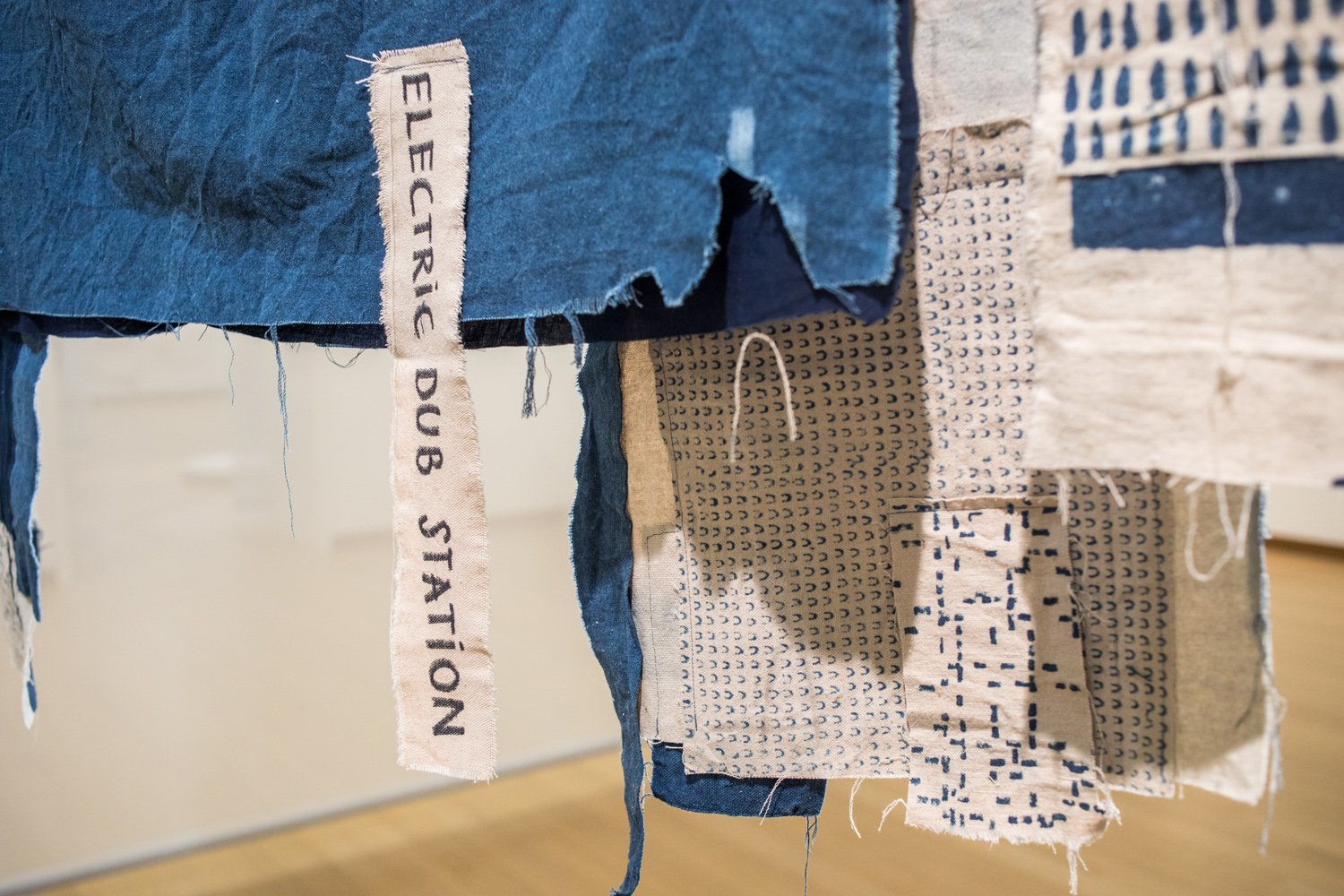


























Electric Dub Station Series by Antonio Jose Guzman & Iva Jankovic
Curators: Amanda Pinatih and Britte Sloothaak
Antonio Jose Guzman engages in audiovisual storytelling through multidisciplinary textile installations, experimental rituals, and performances, and is involved in other projects related to genetics, decolonization, postcolonial history, and the African diaspora. In his Pan-African work, Guzman explores the relationship between the histories of animism, indigo dye, textiles, and sociocultural identity work to address migration and investigate the mechanisms of power and violence associated with the ongoing confrontations between different perceptual worlds.
Iva Jankovic transforms ideas into performances, installations, and unique garments. Merging her background in traditional fine arts with crafts, her sustainable practice serves as a platform for artistic research into the use of patterns and symbols across the world. By deconstructing cross-cultural symbols and bringing them to a local environment, she advocates sustainability as a route towards decolonization.
Messengers of the Sun is part of the Electric Dub Station Series, an ongoing collaboration between multidisciplinary visual artists Antonio Jose Guzman and Iva Jankovic. Their research projects incorporate indigo textiles, photographs, videos, soundscapes, and performances that address how immigration and diaspora have structured today’s world. Through an exploration of global histories of rituals, animism, and a variety of socio- cultural identities, each project creates Afrofuturistic landscapes or spaces where mechanisms of power and violence are confronted and questioned.
For the Stedelijk Museum Amsterdam, Guzman and Jankovic have continued their series with a new textile installation and performances highlighting the sacred ancestral powers that traveled along with transatlantic trade.
Messengers of the Sun encompasses public performances at various locations in the museum building and small-scale rituals in a textile installation in the exhibition space, and explores multiple layers of Black Atlantic interaction—an overarching experience that is not specifically African, American, Caribbean, or British.
The public performances take the form of Afrofuturist ceremonial processions dominated by music and dance referring to a fictional story in which the lost children of the prophet Sun Ra are “messengers of the sun.” They live in the Sirius-B galaxy, to which the ancestors from the African diaspora migrated in times of destruction in Sub- Saharan Africa. Monthly cleansing rituals are performed away from the public gaze to honor the ancestral specters and contemporary spirits they summon. Although modest, meditative, and unannounced, these small-scale rituals are just as important as the public processions.
Visitors entering the exhibition space encounter monumental banners and an Afrimono, a kimono-style garment that is worn during the performances. The fabrics are made using an Indian Ajrakh block printing technique and sewn with Japanese Boro stitching.
The abstract embroidered scriptures on the fabrics are inspired by gris-gris, small talismanic amulets or charms. They originated in West African Islamic traditions and are mostly used by Fulani people. In Muslim communities, illustrators, block printers, and wood workers do not use figurative elements such as faces or eyes to avoid idolatry. This led to the development of floral or geometrical designs. Messengers of the Sun is a further abstraction of these figures, which could be read as a newly developed abstract alphabet.
Users of gris-gris believe these objects have the power to purify the soul and protect the wearer from evil spirits. Under colonial rule, they were brought to the Americas by enslaved African people who used the objects to give them strength and ensure their safe passage across the Atlantic. This led to the introduction of the gris-gris to the southern United States, where they are commonly found to this day in New Orleans, for example.
Now, centuries after the European colonizers and church banned their use, Guzman and Jankovic are providing space for the invocation of these talismans’ positive magical powers, and the introduction into the museum space of Afro-Yoruban and Fulani beliefs in the protective powers of sacred rituals.
Messengers of the Sun is part of: When Things Are Beings, Proposals For The Museum Collection. The group exhibition When Things Are Beings reveals the power of objects and sculptures in a range of visual languages. With 24 projects, designers and artists show in their own way how the material and immaterial realms are connected.
Photos by Marlise Steeman